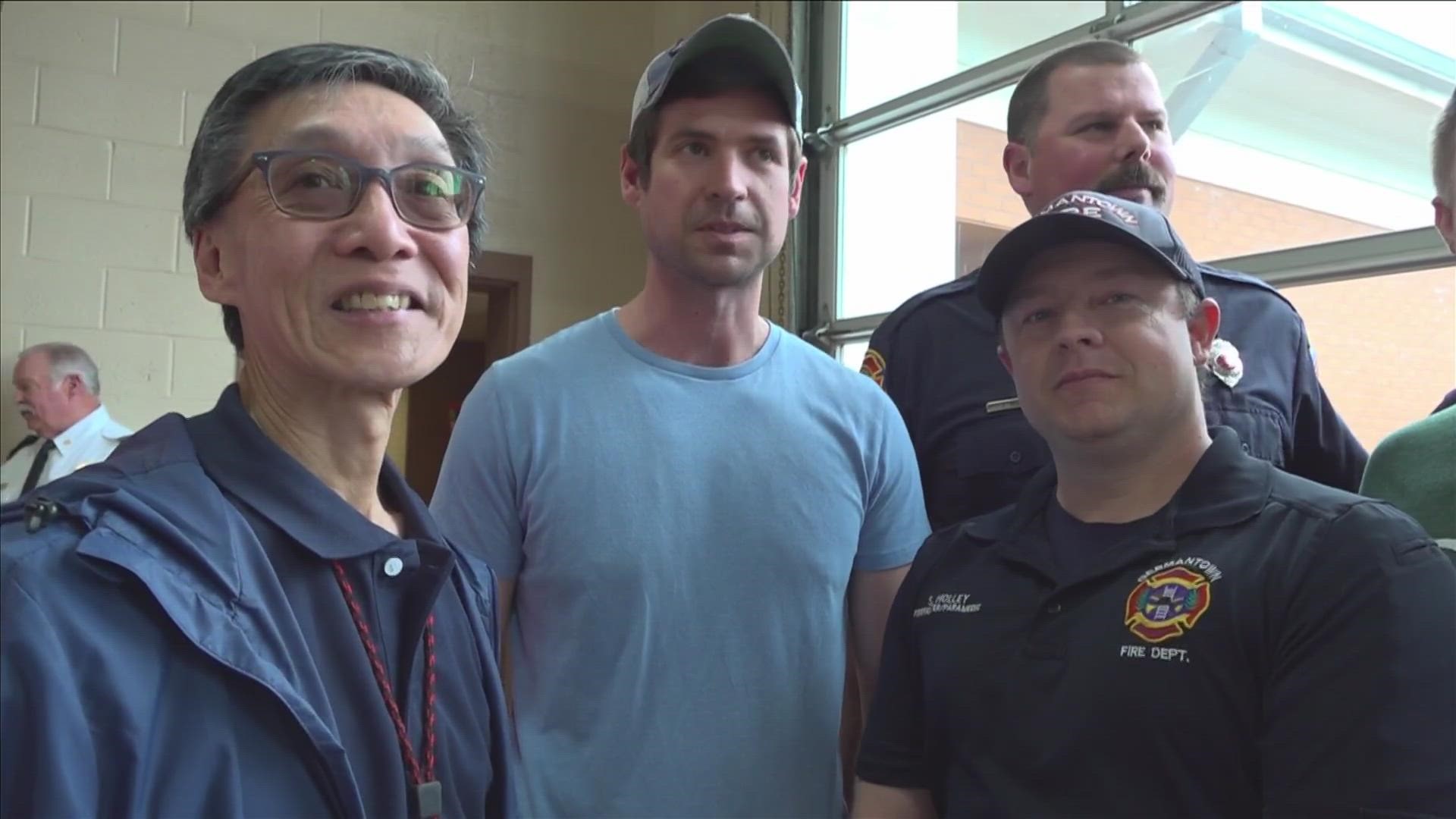GERMANTOWN, Tenn. — When people suffer a sudden cardiac arrest, the chances of survival are unlikely. Those that suffer a sudden cardiac arrest in a hospital see just a 25% chance of survival, and outside a hospital is worse, 10.8%. These odds make a reunion at the Germantown Fire Department even more remarkable. On February 8th, people like Jack Fong were able to meet the first responders who saved their lives.
“Oh my goodness thank you guys,” said Fong to the first responders who saved his life in May 2022. He had suffered a stroke a couple months before and was preparing to go on vacation with his wife. Fong went to mow the lawn, when he suddenly lost consciousness.
“Suddenly I passed out, I didn’t even know I passed out,” said Fong, “My heart had stopped.”
His wife and neighbor ran to his side and began administering CPR to save Fong’s life. The duo were soon relieved by the first responders from Germantown Fire Department. While slim, the odds were improved thanks to the department’s new neuroprotective CPR approach.
“They implemented a series of technologies that include a suction cup-like device, put on a valve that goes on the airway to harness the vacuum so that when you push down and then pull up with that suction cup device, instead of air rushing in, as it pulls up blood comes back to the heart,” said Dr. Keith Lurie, Inventor of Emergency Responder Technology, “And you can double or triple blood flow to the heart.”
Fong’s brain function was preserved, Lurie said doctors almost could not believe Fong suffered a cardiac arrest. The low likelihood of survival for situations like Fong’s is low, which is why Dr. Lurie has put so much effort into developing technology like what was used to save Fong.
“Out of hospital cardiac arrest survival rate, with good neurologic function, nationally is just 7%, so while CPR works and defibrillation works, it doesn’t work enough,” said Dr. Lurie
GFD is actually one of the first departments in the country to use this kind of neuroprotective CPR technology. Thanks to his second chance, Fong is asking everyone to be aware of their heart health, and to get checked out by a doctor regularly.
"I was exercising, everything, eating well, you can't be sick, you can't have a heart attack, you'd be surprised," said Fong.

